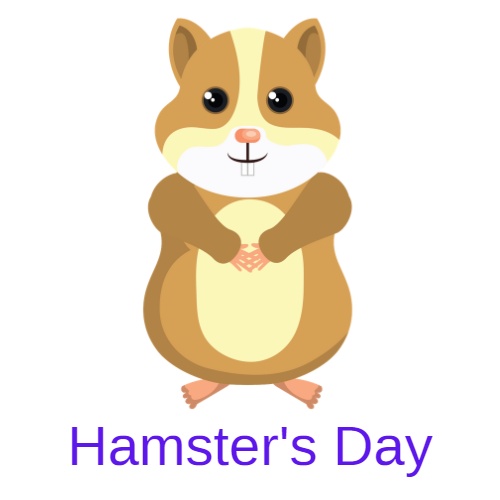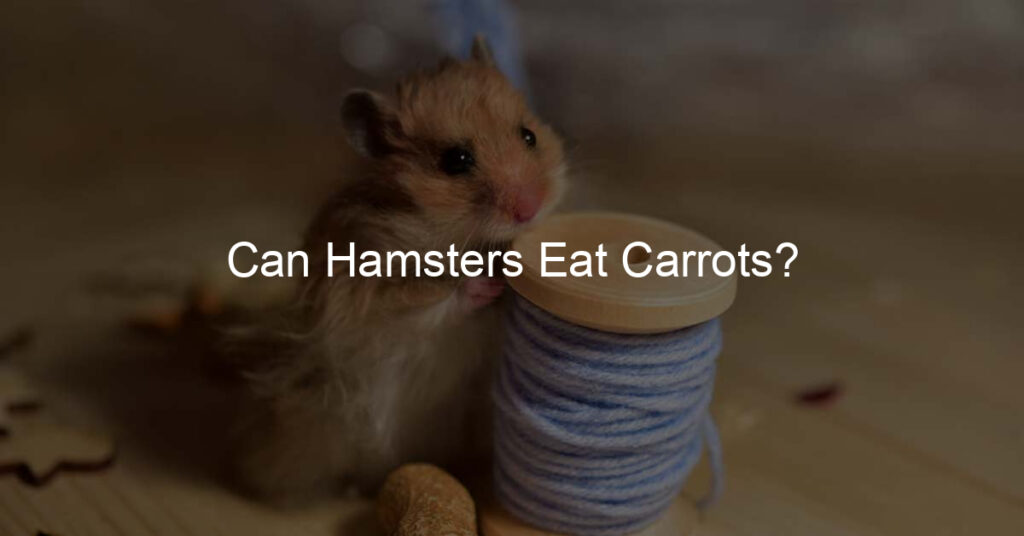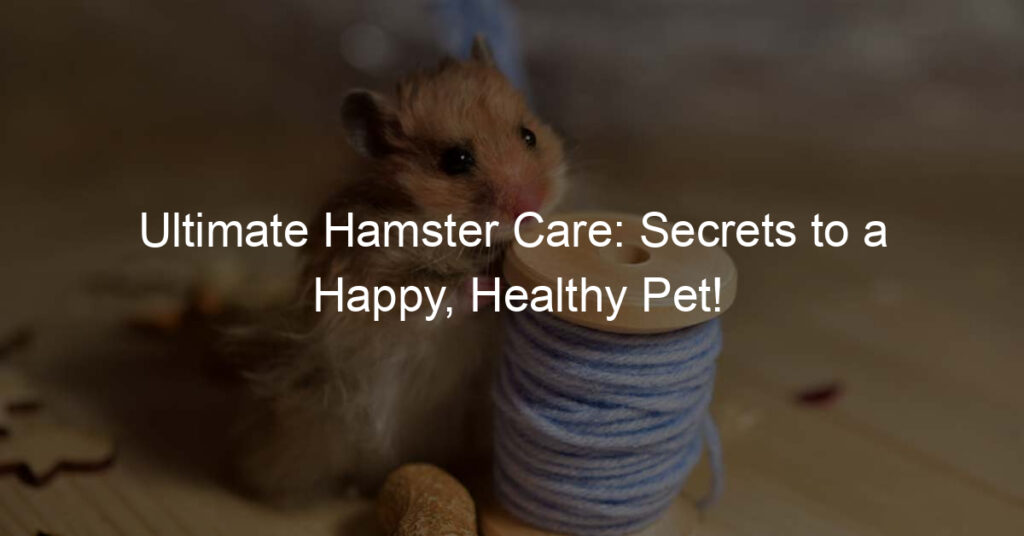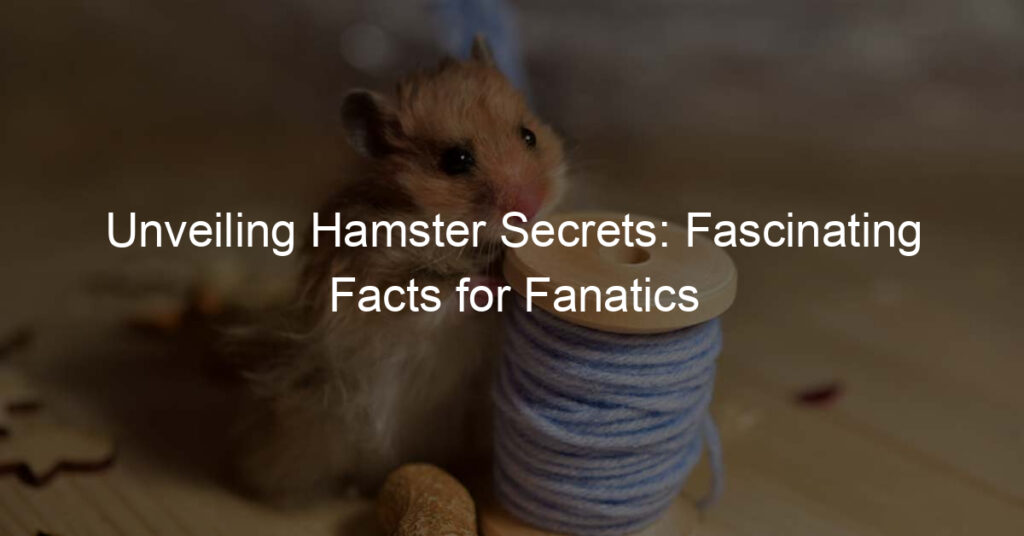Hamsters are adorable and low-maintenance pets, making them popular choices for families and individuals alike.
One question that often arises among hamster owners can hamsters eat carrots?
The answer, thankfully, is yes! In fact, carrots can be a nutritious addition to your hamster’s diet when provided in moderation.
Since hamsters are hoarders by nature, it’s essential to feed them safely and avoid any potential health risks. Carrots are safe for all types of hamsters, including Syrian, dwarves, roborovski, and Chinese hamsters.
Regardless, it’s crucial to take note of the risks of overfeeding carrots to prevent any possible health issues and to ensure your hamster thrives on a balanced and varied diet.
Key Takeaways
- Carrots are a safe and nutritious treat for hamsters when fed in moderation
- Overfeeding carrots can pose health risks, so it’s important to balance their diet
- Consult a vet regularly and provide proper exercise and hydration for a healthy hamster
Can Hamsters Eat Carrots
Hamsters are omnivores and require a well-balanced diet to thrive. A good diet for these small pets includes a mix of proteins, vitamins, minerals, and other essential nutrients.
Your hamster’s nutritional requirements depend on factors like age, breed, and overall health.
A balanced diet typically consists of high-quality commercial hamster food, as this will usually include all the vitamins and minerals your pet needs to stay healthy. Nevertheless, it’s important to supplement their meals with other foods too.
Proteins are crucial for hamsters, as they provide the energy necessary for growth and maintenance of their tissues. This can be provided through a variety of sources, including insects, small pieces of meat, or even certain types of dog food.
Hamsters also benefit from the addition of fresh fruits and vegetables to their diet. These can offer essential vitamins, including vitamin C, which is vital for their immune system.
Since hamsters are unable to produce their own vitamin C, feeding them fruits and vegetables high in vitamin C can help prevent deficiency.
Minerals are another important aspect of hamster nutrition. Calcium, in particular, is critical for maintaining strong bones and teeth. Some leafy green vegetables, such as kale or spinach, can be a good source of calcium for your hamster.
Finally, a hamster’s diet should be low in fat and sugar content. Excessive amounts of these nutrients may lead to obesity and various health issues in your pet.
Provide occasional treats, but ensure they are not high in fats or sugars.
Remember to cater to your hamster’s specific nutritional requirements and always consult your veterinarian when in doubt or if you notice any health-related changes in your pet.
Providing them with a well-balanced and diverse diet will go a long way in keeping your hamster happy and healthy.
Carrots in a Hamster’s Diet
Carrots can be a nutritious addition to a hamster’s diet when offered in moderation. These vegetables contain essential nutrients, such as vitamin A and fiber, that provide health benefits for these small pets.
When feeding carrots to hamsters, it’s important to consider portion size. Offer small pieces of raw carrot, as this helps to prevent any choking hazards.
In addition to the main carrot body, hamsters can also enjoy the green carrot tops. Both raw and baby carrots are suitable options for hamsters, offering similar nutritional benefits.
An aspect to keep in mind is the sugar and water content of carrots. While the sugar levels are not significantly high, it is critical to be mindful of this when feeding hamsters, as their diet should be balanced.
The high water content in carrots keeps hamsters hydrated, but it’s essential to maintain regular access to fresh water to ensure proper hydration.
When introducing carrots to a hamster’s diet, start with a small slice and observe their reaction. Gradually increase the frequency and portion size if the hamster enjoys the treat.
Be sure not to overfeed, as it can lead to health issues. Remember that moderation is key when feeding supplemental treats like carrots.
Preparing carrots for your hamster can be done by simply washing and peeling them. Cut the carrots into small pieces or thin slices to ensure that they present no choking hazards to your pet.
Avoid feeding cooked carrots to hamsters, as they lack the nutritional benefits of raw carrots. Cooking can also alter the texture and increase the risk of choking.
Incorporating carrots into a hamster’s diet offers numerous benefits, such as vitamin A, fiber, and hydration. Keep portions small, stick to raw or baby carrots, and always prioritize a balanced diet for your furry friend.
Other Fruits and Vegetables Suitable for Hamsters
Hamsters can enjoy various fruits and vegetables that supplement their diet and provide essential nutrients. Just like with carrots, it is crucial to offer these in moderation to maintain a balanced diet and avoid any potential health issues.
Some popular fresh vegetables for hamsters include broccoli, cucumber, peas, and leafy greens. These items are packed with vitamins and minerals that benefit their overall health.
When offering leafy greens, opt for varieties like kale, swiss chard, or dandelion leaves. These can be given a few times a week, but keep portion sizes small to avoid digestive problems.
Besides carrots, bell peppers, parsnips, zucchini, and asparagus are also suitable for hamsters. These vegetables provide essential nutrients and help vary their diet, ensuring they get all they need.
Nonetheless, it’s important to introduce new foods to your hamster’s diet gradually and monitor for any signs of digestive upset.
When it comes to fruits, hamsters can indulge in small amounts of apples, melon, and figs. Remember to remove any seeds or cores, as these can pose a choking hazard or even be toxic to your pet.
Fruits are higher in sugar, so moderation is key – offer them as an occasional treat rather than a staple part of their diet.
Hamsters can safely eat a wide range of fruits and vegetables that provide additional nutrition and variety to their diet. Keep portion sizes small, balance their intake with their regular food, and monitor for any possible adverse reactions.
Your hamster will appreciate the diversity, and their health will benefit from these tasty treats.
Health Benefits of Carrots for Hamsters
Carrots are packed with essential nutrients that can help promote your hamster’s overall health. They contain vitamins, minerals, and fiber that contribute positively to their digestive system and immune system.
Here, we will discuss some of the key health benefits of carrots for hamsters.
Firstly, carrots are rich in Vitamin A, which plays a significant role in maintaining healthy skin and vision in hamsters. Adequate Vitamin A intake is crucial for your furry friend’s eyesight and can help prevent vision issues.
Furthermore, this essential nutrient also contributes to a strong immune system, helping your hamster stay healthy and fight off potential illnesses.
Besides Vitamin A, carrots also provide a good dose of Vitamin K, which is beneficial for your hamster’s blood clotting and bone health. This essential nutrient is particularly important for your hamster’s skeletal structure and overall well-being, ensuring that their bones remain in good condition.
The fiber content in carrots offers another crucial health benefit to your hamster. Dietary fiber aids in digestion and helps maintain a regular bowel movement.
This, in turn, prevents constipation and other digestive issues in your little pet, promoting a healthy gastrointestinal system.
Moreover, carrots contain antioxidants that protect your hamster’s cells from oxidative stress and damage. These antioxidants help maintain and support your hamster’s overall health by combating the negative effects of free radicals.
Finally, chewing on carrots can provide dental benefits for your hamster as well. The crunchy texture of carrots helps in cleaning their teeth and may contribute to reducing tartar buildup.
Proper dental maintenance is essential for your hamster, as it helps avoid potential dental problems and keeps their teeth in good shape.
Feeding your hamster with carrots in moderation can offer significant health benefits such as improved vision, immune system support, better digestion, antioxidant properties, and dental health.
Just remember to always provide carrots as a treat and not as a primary food source to ensure a well-balanced diet for your little furry companion.
Risks of Overfeeding Carrots
Feeding hamsters too many carrots can lead to several health issues. One such problem is diarrhea, which can result from an overload of carbohydrates in their diet.
Carrots are high in sugar, and excessive consumption could cause obesity and diabetes in hamsters. To avoid these risks, it’s essential to provide hamsters with a balanced diet and feed carrots only in moderation.
Another reason to limit carrot consumption is their high water content, which can lead to bloating and an upset stomach. While some fiber is necessary for digestion, excessive amounts from an abundance of carrots could cause constipation.
Hamster owners should monitor their pets closely for any signs of digestive issues and adjust their diets accordingly.
Moreover, the high calcium content in carrots poses a risk for the development of bladder stones. These stones can be painful and may require medical intervention.
Stomach ulcers are another potential problem that could arise from overfeeding carrots.
In conclusion, it’s crucial for hamster owners to be mindful of the risks associated with overfeeding carrots. Offering these nutritious treats in moderation and as part of a varied diet can help ensure optimal health for your furry friends.
Other Foods to Avoid for Hamsters
When feeding your hamster, it’s important to be aware of the foods that may not be suitable for them. While carrots are a safe and nutritious treat, there are some other types of fruits, vegetables, and human foods that should be avoided.
Hamsters should not be given citrus fruits such as oranges and lemons, as these can cause an upset stomach. It is also best to avoid feeding them onions and garlic, as these strong aromatic foods can be toxic to hamsters.
Corn is another food item that should be avoided due to the risk of choking hazards and the potential for mold growth when stored improperly.
In addition, refrain from giving chocolate to your hamster, as it contains substances that can be harmful to their health.
Some fruits like apples and pears can be fed occasionally, but make sure to remove the seeds first, as they contain small amounts of cyanide, which can be harmful to hamsters.
Almonds should be avoided, too, as they can be high in fat and unsuitable for their diet. Instead, opt for other safe nuts like hazelnuts or walnuts as occasional treats.
It’s crucial to avoid feeding your hamster foods like citrus fruits, onions, garlic, corn, chocolate, and almonds. Always be cautious with any new food items and research their suitability for your furry friend before introducing them to their diet.
Remember, keeping your hamster healthy and happy starts with a proper and well-balanced diet.
Alternatives to Carrots in a Hamster’s Diet
Carrots make a healthy treat for hamsters, but it’s essential to provide a diverse diet to ensure they get all the necessary nutrients. Some nutritious alternatives to carrots in your hamster’s diet include a mix of fresh fruits, vegetables, and commercial food options.
Here are a few choices to consider:
- Blueberries: A tasty treat, blueberries add variety to your hamster’s diet and supply valuable antioxidants, vitamins, and minerals. As with all treats, serve in moderation to avoid upsetting your pet’s digestive system.
- Watercress: This leafy green offers an excellent choice for hamsters, providing essential nutrients like vitamin K, vitamin C, and calcium. It’s a fantastic alternative to carrots, but remember to introduce it gradually to your hamster’s diet to prevent digestion issues.
- Mixed Food: A balanced diet for your hamster should also contain mixed food options like seeds, grains, and nuts. These blends offer your hamster essential nutrients like proteins, vitamins, minerals, and fibers, ensuring their overall well-being. Always opt for high-quality, trusted brands when choosing mixed foods.
- Pelleted Food: In addition to mixed food, pelleted food is an essential component of your hamster’s diet. These commercially available food items are designed explicitly for hamsters and contain a blend of essential nutrients required by your pet. Pelleted food can ensure your hamster gets the necessary nutrients in case fresh fruit and vegetable options are limited.
In conclusion, while carrots are a suitable treat for hamsters, remember to supplement their diet with a variety of fresh fruits, vegetables, and commercial food options like mixed food and pelleted food.
By doing so, you can ensure your hamster receives a balanced and healthy diet tailored to their needs.
Specific Hamster Types and Diet
When considering if hamsters can eat carrots, it’s essential to keep in mind the different hamster types and their specific dietary needs. The five species of hamsters, which include Syrian, dwarf, Roborovski, and Chinese hamsters, can all safely consume carrots as a snack.
Nonetheless, the quantity and frequency should be tailored to each hamster type.
Syrian hamsters, also known as Teddy Bear or Golden hamsters, are the largest and most common pet hamsters. They can be offered small pieces of carrots a few times a week as part of a balanced diet.
But remember to keep portions small, as carrots contain sugar, which could be harmful in larger quantities.
Dwarf hamsters, including Roborovski and Chinese hamsters, are smaller in size compared to Syrian hamsters. Their dietary requirements are similar, but due to their smaller size, it’s crucial to offer them smaller carrot pieces and ensure moderation in their consumption.
A couple of times a week should suffice for these tiny pets.
As a general guideline for all hamster types, offer fresh and washed carrots that have been chopped into small, manageable pieces. This helps prevent choking hazards and aids in digestion.
Carrots are a good source of essential nutrients like vitamins A, C, K, and potassium, which contribute to a hamster’s overall health. Moreover, their crunchy texture stimulates their natural chewing instinct and promotes dental health.
Although hamsters can eat carrots, it’s not the only vegetable they should consume. Their diet should primarily consist of a high-quality hamster mix offered daily with occasional vegetables and fruit treats.
Providing a diverse and balanced diet, your pet hamster can live a healthy and happy life.
Hydration and Hamsters’ Health
Hamsters, like all living creatures, require adequate hydration to maintain their health and well-being. One of the key aspects of a hamster’s diet involves ensuring they have access to fresh water and a balanced diet that provides the necessary nutrients.
In addition to water, selecting certain food items can play a critical role in keeping them hydrated.
Carrots, for instance, are known to have high water content, making them a suitable choice for hydrating hamsters. Offering your hamster a small piece of carrot can be beneficial in supplying essential fluids to their bodies.
However, it is vital to remember that carrots should only be served in moderation as part of a well-balanced diet. Overconsumption of carrots may lead to health issues stemming from their sugar content, such as obesity and diabetes in hamsters.
Always ensure your hamster has access to a fresh supply of water in their cage, regardless of the food options provided. Clean, fresh water is a vital component of their daily care, and hamsters should have access to it at all times.
Incorporating carrots into your hamster’s diet, alongside a source of fresh water, can help maintain their hydration and overall health.
Just remember to provide carrots in small amounts as part of a balanced and varied diet, ensuring a happy and thriving hamster.
Regular Vet Checkups for Hamster’s Well-being
A hamster’s well-being is crucial to ensure they live a long, healthy, and happy life. Regular veterinary checkups are an essential aspect of maintaining your furry friend’s health.
These visits allow the veterinarian to monitor your hamster’s overall health and catch any potential issues early on.
As a responsible pet owner, you should schedule periodic checkups with a veterinarian experienced in hamster care. During these visits, the vet will typically examine your hamster’s teeth, fur, weight, and general behavior for any signs of problems.
Some common issues faced by hamsters include dental problems, respiratory infections, and overgrown nails and teeth.
Bringing your hamster to the vet on a regular basis not only helps detect potential diseases but also provides an excellent opportunity for your furry friend to receive proper nutrition advice.
A well-balanced diet is vital for hamsters, and incorporating safe foods like carrots in moderation can offer an extra source of vitamins and nutrients.
Regardless, make sure to consult with your veterinarian before introducing new foods and treats to your hamster’s diet.
It’s essential for pet owners to remember that preventative care is the key to maintaining their hamster’s well-being. By scheduling regular vet appointments, you can ensure your little companion receives the best care possible, contributing to a long and healthy life.
In summary, prioritizing your hamster’s well-being through regular veterinarian checkups is a vital aspect of responsible pet ownership. Keep a close eye on your hamster’s health and consult with your veterinarian regarding proper diet, exercise, and overall care.
Your hamster will thank you for your love and companionship.
Exercise and Hamsters’ Health
Regular exercise is essential for a hamster’s overall well-being. While carrots contribute vital vitamins and minerals to their diet, it’s also crucial for hamsters to engage in physical activities to maintain optimal health.
Exercise helps to keep hamsters’ weight in check, preventing obesity, which is a common issue in these small pets. Further, physical activity can aid in digestion, ensuring the consumed carrots and other food items do not cause unnecessary health complications.
One effective way to provide exercise opportunities for hamsters is by offering them a running wheel. Most pet owners are familiar with the sight of a hamster tirelessly running on a wheel, and that’s because it’s an appealing form of exercise for them.
Wheels come in various sizes and materials, making it easy to find the right one for your hamster’s needs.
Another option to encourage physical activity is through playtime outside their enclosure. A supervised exploration in a secure area allows hamsters to roam freely, stimulating their curiosity and natural instincts.
This could be done using a hamster ball, which keeps them safe while they exercise and explore their surroundings.
As a blog, we also recommend incorporating hiding spots, climbing structures, and tunnels in their enclosure to stimulate their minds and keep them active.
This will allow hamsters to fulfill their natural burrowing, hiding, and climbing instincts, all while incorporating exercise into their daily routine.
In conclusion, while carrots are a beneficial addition to a hamster’s diet, ensuring they have ample opportunities for exercise is another crucial aspect of maintaining their overall health.
A combination of a proper diet and regular physical activity will result in a happy, healthy, and content hamster.
Frequently Asked Questions
Are carrots a safe snack for hamsters?
Yes, carrots are a safe and nutritious snack for hamsters when given in moderation. They can be a great supplement to your hamster’s diet, providing essential nutrients.
How should carrots be prepared for hamsters?
Before feeding carrots to your hamsters, wash them well to remove any dirt or pesticides. You can either give them a small piece of carrot or shred it to make it easier for the hamster to eat. Make sure you don’t overfeed them, as too much carrot can lead to health issues.
What other veggies can hamsters eat?
Hamsters can eat various veggies, such as cucumbers, broccoli, bell peppers, and zucchini. Like carrots, these vegetables should be given in moderation and always be thoroughly cleaned before serving.
Are all types of hamsters able to eat carrots?
Yes, all types of hamsters can enjoy carrots as part of their diet. Just remember to always feed them in moderation and to provide a well-balanced diet to support their overall health.
What are the benefits of carrots for hamsters?
Carrots are rich in vitamins and minerals, such as vitamin A, which are essential for maintaining good eyesight and supporting brain function.
Additionally, carrots contain antioxidants that help prevent cancer and vitamin C, which boosts the hamster’s immune system and keeps the heart healthy.
Are there any risks of feeding carrots to hamsters?
Although carrots provide health benefits, there are risks associated with overfeeding. Carrots are high in sugar, and too much can cause obesity in hamsters.
Providing a well-balanced diet and feeding carrots in moderation is essential to keep your hamster healthy.








